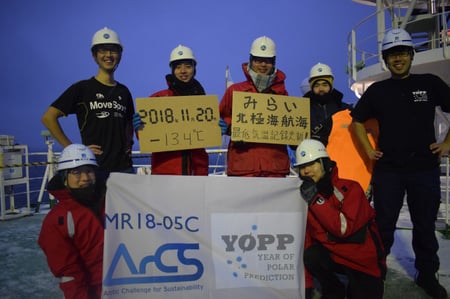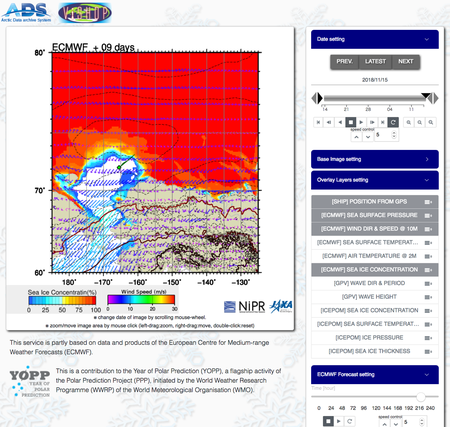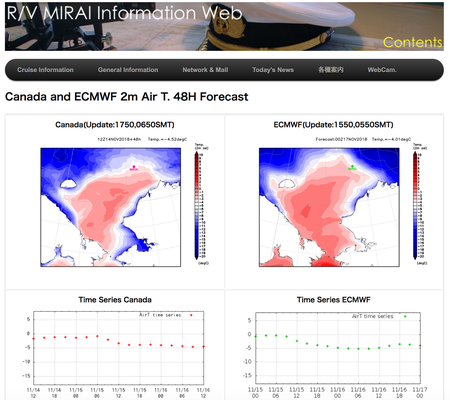The Japanese Arctic researchers on board RV Mirai is challenging the early winter expedition during November 2018 in the Chukuchi Sea. This is the first trial to enter the Arctic Ocean in this season for this ice-strengthen ship. By using the frequent radiosondes, wave buoys, and daily CTD casts near the marginal ice zone, predictabilities of weather, wave, and sea ice in the Arctic during the period of freezing will be investigated.
To success this challenging mission, precise weather and sea-ice forecasts are necessary for safe navigation and valuable observing activities. Jun Inoue, a chief scientist of this cruise and a PPP SG member, is supported by the Year of Polar Prediction (YOPP) operational forecasts provided from the European Centre for Medium-Range Weather Forecasts (ECMWF) and Environment and Climate Change Canada (ECCC). In addition to this, his institution, the Japanese National Institute of Polar Research (NIPR), has developed the Vessel Navigation Unit support System (VENUS) to receive and process the forecast data automatically on the ship.
He uses the real time forecasts to manage the cruise schedule on time scales from a day to a week. For example, because a closing of Bering Strait by sea ice is critical for this ice-strengthen ship, several parameters (air temperature, winds, sea ice cover, etc) should be considered and compared among both weather centers to decide the final date in the Arctic Ocean. At a daily observation meeting, the captain and the ice-pilot learns how high-resolution multiple center forecasts are valuable for them.
Users of weather services can feedback to operational weather centers. The radiosonde data from RV Mirai is transferred in real time for the operational weather forecasts as a part of YOPP contribution. The daily repeat CTD casts including the marginal ice zone would be valuable for evaluating an atmosphere-ice-ocean coupled model. Toward the YOPP consolidation phase, this cruise would be a good example to seek user requirements for polar navigation.

Researchers on board RV Mirai (Photo: Takehito Hattori (RV Mirai crew))

A snapshot of the VENUS system.
We also compare the multi-center products.





